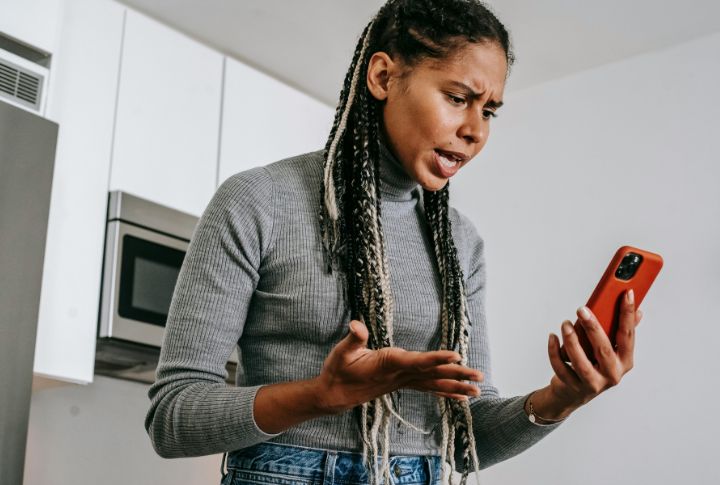
You know those moments when someone says something nice, but it doesn’t quite sit right? Turns out, polite conversation is loaded with hidden meanings that most of us miss completely. These innocent-sounding phrases often carry secret messages that reveal what people actually think about situations. Let’s decode what’s really being said.
“With All Due Respect”

Say “with all due respect,” and people already know what’s coming next—disagreement. That’s because it usually introduces a contradiction. The phrase was born in debates, where civility mattered, but now it’s usually mocked on screen and dismissed in emails. The better path is simple: be respectful through genuine dialogue.
“That’s Interesting”

This usually isn’t the compliment. Most of the time, it’s code for “I’m bored” or “I have no idea what to say.” Most people use it as a safe exit from an awkward conversation. Even body language gives it away, which is why comedians often make jokes about it as the ultimate filler phrase.
“I’ll Think About It”

The phrase sounds promising, but the reality is less encouraging. “I’ll think about it” rarely reflects true consideration. Instead, it serves as a polite way of saying no without rejecting outright. In sales, it’s recognized as a soft refusal. At home, you may even find kids using it to dodge chores.
“Bless Your Heart”

In Southern U.S. culture, “bless your heart” is not always kind. Sure, it can be warm, but at times it’s a polite jab at someone seen as naive or foolish. This phrase has a reputation as one of the most common backhanded compliments. Additionally, foreigners may misinterpret it as genuine kindness rather than sarcasm.
“We Should Get Together Sometime”

Picture this: you bump into an old acquaintance. They smile and say, “We should get together sometime.” Sounds genuine, right? Usually, it’s not. Most people never plan to follow through. It’s a polite guilt-easer, common at networking events. Memes have even crowned it the calling card of the “friendship ghost.”
“That’s One Way To Look At It”

“That’s one way to look at it” is a gentle disagreement. It pushes back politely instead of shutting someone down. And the phrase has roots in academic debate, where civility matters. Away from classrooms, people use it sarcastically. Yet it can also smooth over tension, keeping arguments from becoming hostile.
“That’s Nice”

Ever share something exciting only to hear, “That’s nice”? Well, odds are, the person wasn’t impressed. This expression typically conveys disinterest rather than approval. Parents lean on it to close long-winded tales from their kids. Online, sarcasm turned it into a meme, and younger people now sidestep it completely by saying “cool” instead.
“Thanks For Your Input”

You’ve probably heard “thanks for your input” around a conference table. It seems respectful; however, it’s typically code for “we’re not going with that suggestion.” Over time, it became a staple of corporate culture, typically delivered with a forced grin. No wonder it appears frequently in office comedy sketches.
“Good For You”

At first, “good for you” sounds supportive. However, many people catch the envy or sarcasm underneath. The remark usually signals fake praise rather than genuine approval. Sitcoms use the line as a classic punchline, and in families, especially between siblings, the tone makes it clear that the words are both mocking and admiring.
“Let’s Agree To Disagree”

This phrase is the verbal white flag of arguments. On the surface, it sounds civil, while in reality, it’s frustration dressed up as diplomacy. Even politicians love tossing it around, which is why it feels like such a debate cop-out. Memes sum it up: it basically means, “you’re wrong and I’m finished talking.”
“Do Whatever You Want”

Be careful with “Do whatever you want.” It may look like permission, but it’s rarely sincere. More often, it conveys irritation or disapproval. In relationships, it’s recognized as a red flag, often followed by silence. It’s also one of the most commonly ranked sarcastic phrases in modern communication.
“It’s Fine, Don’t Worry About It”

We all know the phrase. Someone says, “It’s fine, don’t worry about it,” and right away you know it’s not fine. That line is the emotional equivalent of a neon sign screaming, “I’m mad, but I’m not going to admit it out loud.” It’s conflict-avoidance 101, and honestly, it’s fueled teen dramas for decades.
“If You Say So”

It might sound like they’re on board, but often there’s a hint of doubt underneath. People use “If You Say So” to politely wrap up a conversation without starting an argument. Watch their tone and body language—they usually give away what they really think, even when their words seem agreeable.
“That’s Bold Of You”

What’s fun about this phrase is how the meaning flips depending on tone. Literally, it suggests admiration. However, in everyday use, it’s playful, spotlighting rashness instead of bravery. Thanks to Gen Z slang and meme culture, it’s now widely used online—sometimes even to label something flat-out foolish.
“We’ll See”

Few phrases fool kids quite like “we’ll see.” To little ears, it’s exciting, maybe even a promise. To parents, it’s a polite brush-off that almost always hides a no. Over time, it became one of the most recognized parent lies, usually joked about in parenting blogs and family forums online.
“I’ll Let You Know”

You ask someone for plans, and they smile: “I’ll let you know.” You leave hopeful, but deep down, you know the truth. The reply almost never leads to an actual update. Think of it as a gentle no, especially in office culture where bluntness is frequently avoided.
“It’s Not You, It’s Me”

Imagine hearing, “It’s not you, it’s me,” during a breakup. The words sound considerate, but most people know the subtext: it really is about the other person. Sitcoms made the phrase iconic, and over time, romantic parodies have kept it alive, while plenty still view it as classic conflict avoidance.
“Thanks In Advance”

Here’s the thing: “Thanks in advance” isn’t just a thank-you, it’s a setup. The sender gets to sound polite while silently assuming you’ll say yes. It’s like prepaying for gratitude before the job’s even done. That little phrase has earned a reputation as one of email’s most passive-aggressive moves.
“That’s Different”

The phrase “that’s different” is interesting because it hides its true meaning. While it could literally suggest uniqueness, it usually works as a polite mask for disapproval. Reviewers, families, and even comedians rely on it as a softer way to express dislike without saying it outright. Tone gives it away.
“No Worries”

It can sound like reassurance. But tone matters. “No Worries” can also imply frustration, as if the inconvenience wasn’t appreciated. In Australian English, the phrase genuinely means “you’re welcome.” In U.S. offices, though, it usually hints at mild annoyance. Globally, it ranks among the most misinterpreted phrases of all.

